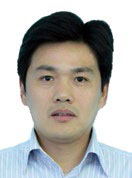Keynote Lecture V
Immunosuppression of granulocytic myeloid-derived suppressor cells derived exosomes
Wang Shengjun
Jiangsu University
 His research has been focusing on autoimmune diseases (such as rheumatoid arthritis and Hashimoto's thyroiditis) and tumor immunology. Studies in RA patients and animal model have aimed to examine the subset of CD4+T cells and its role in maintaining quality control and homeostasis in the immune system. He is also interested in studying the tumor therapy by biological response modifiers. As Principle Investigator, he has chaired and completed more than 10 national and provincial research projects sponsored by the National Natural Science Foundation of China and the Natural Science Foundation of Jiangsu Province, and won a number of provincial prizes for his academic achievements. He has published over 100 peer-reviewed papers, such as J Immunol, Eur J Immunol, Am J Pathol, and PNAS. He has served as a reviewer for 15 international journals and been on the editorial board of Front Immunol. He has supervised more than 40 doctoral and master’s degree candidates.
His research has been focusing on autoimmune diseases (such as rheumatoid arthritis and Hashimoto's thyroiditis) and tumor immunology. Studies in RA patients and animal model have aimed to examine the subset of CD4+T cells and its role in maintaining quality control and homeostasis in the immune system. He is also interested in studying the tumor therapy by biological response modifiers. As Principle Investigator, he has chaired and completed more than 10 national and provincial research projects sponsored by the National Natural Science Foundation of China and the Natural Science Foundation of Jiangsu Province, and won a number of provincial prizes for his academic achievements. He has published over 100 peer-reviewed papers, such as J Immunol, Eur J Immunol, Am J Pathol, and PNAS. He has served as a reviewer for 15 international journals and been on the editorial board of Front Immunol. He has supervised more than 40 doctoral and master’s degree candidates.
王勝軍:博士、教授、博士生導師,現任江蘇大學醫學院副院長,江蘇省檢驗醫學重點實驗室副主任,江蘇省優勢學科學術帶頭人。先後兼任中華微生物與免疫學會青年委員、中國醫師協會移植免疫專業委員會委員、江蘇省免疫學會常務理事、江蘇省醫學會微生物與免疫學分會副主任委員、美國免疫學會(AAI)會員等。參加國家重點研發計畫、國家自然科學基金、國家新藥評定會議評審,以及英國醫學研究理事會(MRC)、奧地利科學基金(FWF)等通訊評審工作,擔任Front Immunol等多種國內外期刊編委。先後入選江蘇省“333工程”中青年科技領軍人才、江蘇省衛生領軍人才、江蘇省醫學重點人才、江蘇省“青藍工程”中青年學術帶頭人、江蘇省“六大人才高峰”高層次人才等人才專案。長期從事臨床免疫學工作,主持國家自然科學基金10項(含國際交流專案)、江蘇省自然科學基金(創新人才專案)和臨床醫學專項等省部級課題8項,近年來以通訊作者在J Immunol、OncoImmunology、Am J Pathol等SCI源刊發表論文52篇,以合作者在PNAS USA、Ann Rheum Dis等SCI源刊發表論文20餘篇,研究成果被Nat Immunol、Nat Rev Immunol、Nat Rev Drug Discov 等SCI期刊引用超過1200次,h-index 22。先後獲省部級科學技術獎4項,授權國家發明專利2項,國際PCT專利1項,主編、參編教材6部。培養和指導博士、碩士研究生50名,指導的學位論文獲江蘇省優秀博士、優秀碩士學位論文4篇。
Abstract
Myeloid-derived suppressor cells (MDSC) are broadly considered as a heterogeneous population of immature myeloid cells that dampen the immune response and accumulate in pathological cases of tumor, inflammation, and pathogen infection. Murine MDSCs can be further subdivided into two different subsets based on their expression of Ly-6C and Ly-6G. CD11b+Ly-6G+Ly-6Clow cells showing granulocyte-like morphology are termed granulocytic MDSCs (G-MDSCs), whereas CD11b+Ly-6G-Ly-6Chigh cells with monocytic-like morphology are termed monocytic MDSCs (M-MDSCs). However, the exact role of MDSC in autoimmune diseases pathogenesis is unclear, and there are controversies regarding their immunosuppressive functions in this context. Exosomes (exo) are 30-120-nm phospholipid bilayer-enclosed vesicles that are either released from the parental cell into the extracellular space when multivesicular bodies fuse with the plasma membrane or released directly from the plasma membrane. We found that G-MDSC exo could attenuate DSS-induced colitis and collagen induced arthritis (CIA). Subsequently, we confirmed that G-MDSC exo suppress CD4+ T cell proliferation and the delayed-type hypersensitivity (DTH) response, and these roles were partially related to arginase (Arg)-1 activity. Moreover, G-MDSC exo could promote Treg cells expansion in vitro. Our findings provide a potential immunotherapy for IBD and other autoimmune diseases.
髓源性抑制細胞(myeloid derived suppressor cells, MDSCs)是一群異質性髓系細胞,機體在腫瘤、炎症和感染等病理情況下MDSC顯著增加。小鼠體內的MDSCs根據GR1 的兩個不同抗原表位(LY6G和LY6C)表達水準的差異,分為兩個不同的MDSCs亞群:粒/多形核細胞樣MDSCs(G-MDSCs),具有CD11b+LY6G+LY6Clow的表型,表現為未成熟的、病理性活化的中性粒細胞;單核細胞樣MDSCs(M-MDSCs),具有CD11b+ LY6G- LY6Chi的表型,表現為未成熟的、病理性活化的單核細胞。然而,MDSC在自身免疫性疾病中的作用並不明確,甚至存在相互矛盾的結果。Exosomes是細胞分泌到細胞外環境中的直徑為30-100nm的不可溶性膜性囊泡,exosomes中包含大量的特異性蛋白、微小RNA 分子 (micro RNA, miRNA) 和mRNA等成分,是活細胞主動分泌的一種亞細胞結構。我們發現G-MDSC來源的exosomes可明顯抑制DSS誘導的腸炎、以及II型膠原誘導的關節炎。G-MDSC來源的exosomes可有效抑制CD4+ T細胞的體外增殖和體內DTH反應,並且部分依賴於Arg-1的作用。我們的實驗結果為自身免疫性疾病的治療提供了一種新的免疫治療方案。


